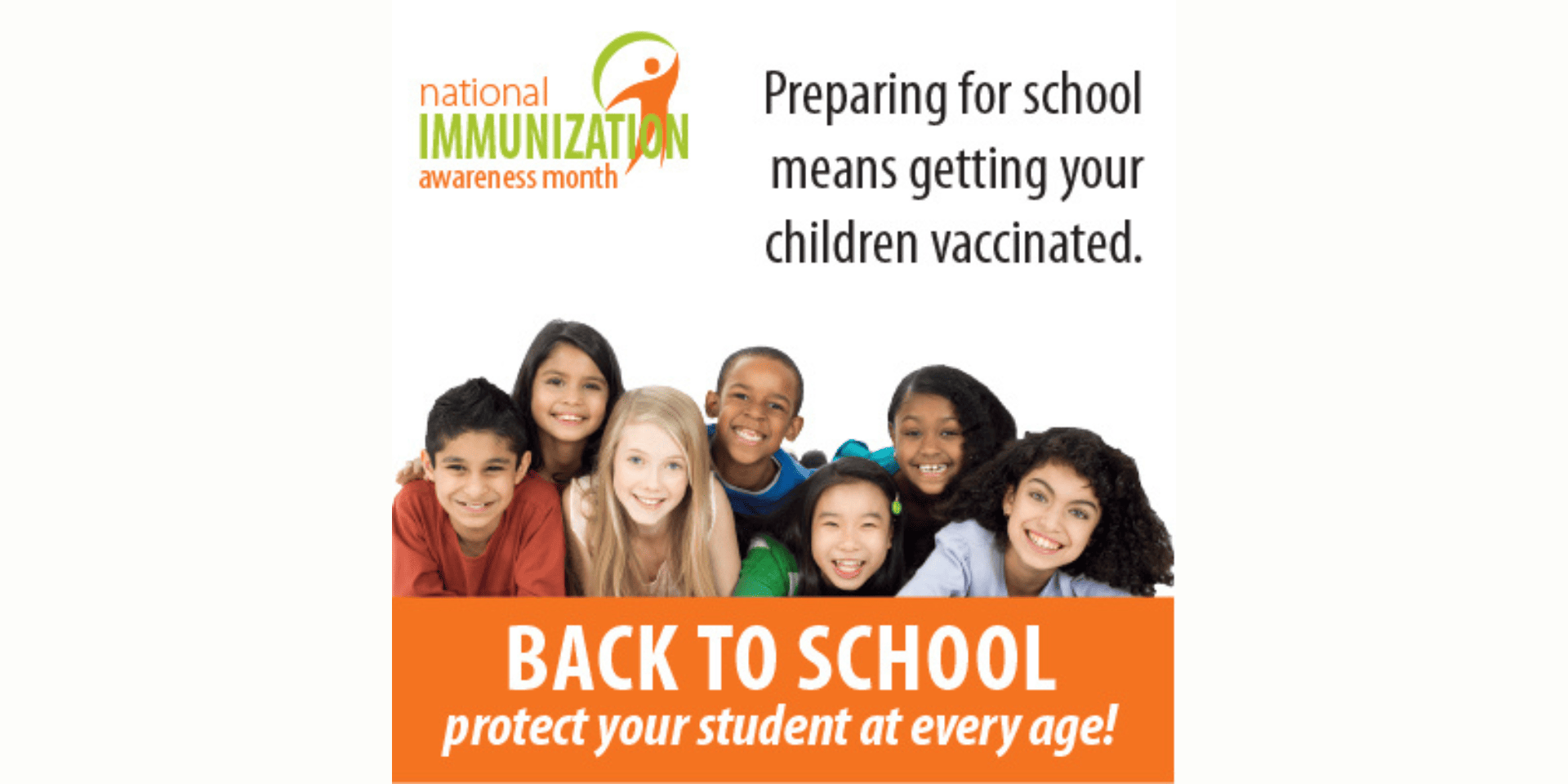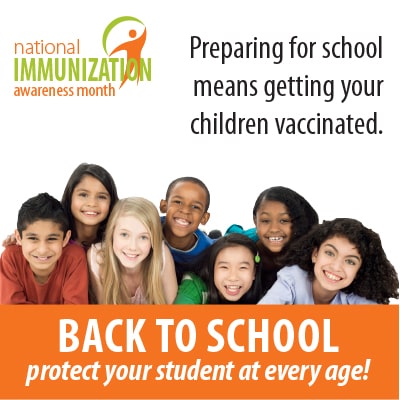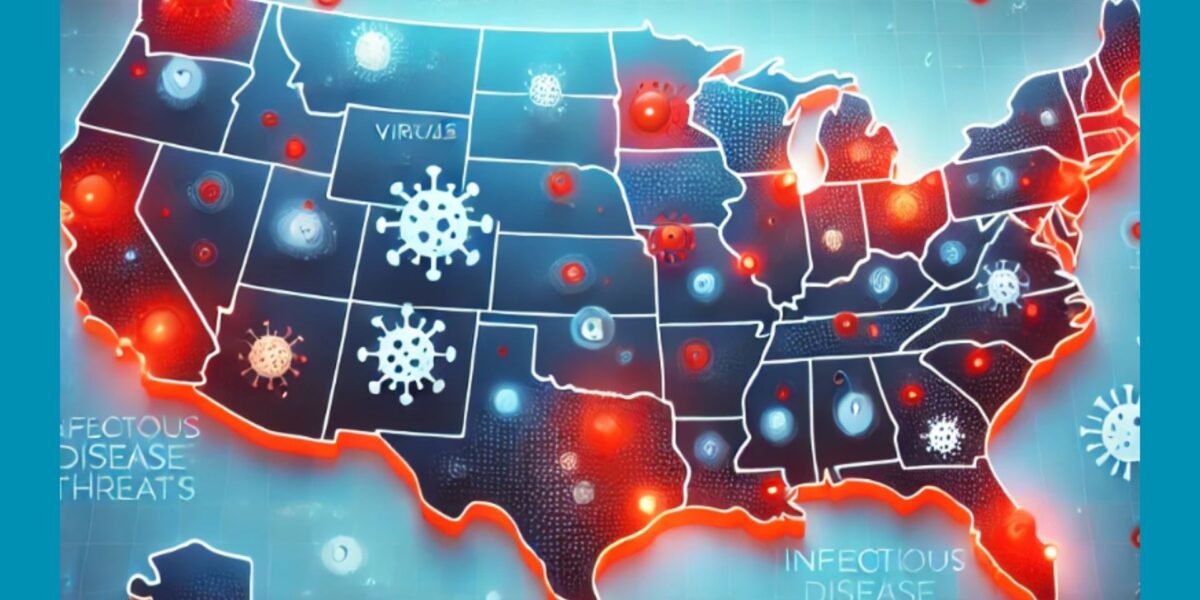
 The month of August has been designated as National Immunization Awareness Month. As a partnering organization, the National Foundation for Infectious Diseases (NFID) is helping to promote the importance of immunization in keeping our communities healthy.
The month of August has been designated as National Immunization Awareness Month. As a partnering organization, the National Foundation for Infectious Diseases (NFID) is helping to promote the importance of immunization in keeping our communities healthy.
Preparing for school means gathering supplies and backpacks. It’s also the perfect time to make sure children are up to date on their vaccines. Getting all of the recommended vaccines is one of the most important things parents can do to protect their children’s health.
When children are not fully vaccinated, they are at increased risk for disease and can spread disease to others in their classroom and community – including babies who are too young to be fully vaccinated, and people with weakened immune systems due to cancer and other health conditions. Schools are highly susceptible to outbreaks of infectious diseases because students can easily transmit illnesses to one another as a result of poor hand washing, uncovered coughs, and dense populations.
With many outbreaks occurring across the country, vaccine-preventable diseases are still very real. Vaccines for adolescents can help protect your kids, as well as their friends, neighbors, and other family members. There are currently four recommended vaccines for adolescents at ages 11-12 years old:
1. HPV vaccine for both boys and girls protects against the types of HPV that most commonly cause cancer. HPV can cause cancers of the cervix, vulva, and vagina in women and cancers of the penis in men. In both women and men, HPV is related to mouth/throat cancer, anal cancer, and genital warts.
2. Tdap vaccine is a booster against tetanus, diphtheria, and pertussis. Pertussis (whooping cough) can keep kids out of school and activities for weeks. It can also be spread to babies, and this can be very dangerous and sometimes deadly.
3. Meningococcal vaccine protects against meningococcal disease which is caused by bacteria and is a leading cause of bacterial meningitis – a serious, and potentially deadly infection around the brain and spinal cord.
4. Influenza (flu) vaccine, because even healthy kids can get the flu, and it can be serious. All kids, including your preteens and teens, should get the flu vaccine every year.
Talk with a doctor, nurse, or pharmacist about the recommended vaccines for preteens and teens. Even though they may not realize it, your kids still need you for more than getting a ride somewhere. They need you to continue protecting their health by getting them these important and life-saving vaccines.
Want to learn more about the vaccines recommended for preteens and teens? Visit www.adolescentvaccination.org.
To join the conversation, follow us on Twitter (@nfidvaccines) and use the hashtag #NIAM14, like us on Facebook, and join the NFID Linkedin Group.
Related Posts

News Round-Up: Infectious Disease Threats
According to NFID website poll, there are several worrisome infectious disease threats. Read recent news on topics of greatest concern, including avian influenza (bird flu), measles, and respiratory syncytial virus (RSV) …

Vaccines and Heart Health: A Vital Connection
Heart disease can increase the risk of serious or fatal complications from respiratory diseases including COVID-19, flu, and RSV

Harnessing the Power of Local Data
NFID dashboard aims to empower stakeholders with hyperlocal data to increase US adult respiratory vaccine uptake
